April 28, 2025 | Jon Kelvey

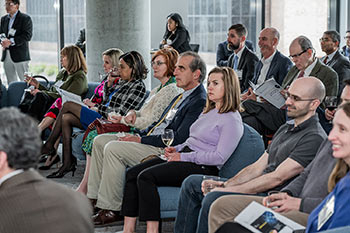 A new collaboration bringing entrepreneurs and investors together with physician-scientists, surgeons, and medical technologists promises to launch the Baltimore region as a major national hub for new biomedical ventures and start-up companies. The initiative, called the “Innovation Alliance,” leverages the national and international leadership in biomedical research and technology of the City's two major universities (University of Maryland, Baltimore and Johns Hopkins University) to attract venture capital, foster startups, drive economic growth, and ultimately bring to market new treatments, cures, and technologies that will directly improve lives.
A new collaboration bringing entrepreneurs and investors together with physician-scientists, surgeons, and medical technologists promises to launch the Baltimore region as a major national hub for new biomedical ventures and start-up companies. The initiative, called the “Innovation Alliance,” leverages the national and international leadership in biomedical research and technology of the City's two major universities (University of Maryland, Baltimore and Johns Hopkins University) to attract venture capital, foster startups, drive economic growth, and ultimately bring to market new treatments, cures, and technologies that will directly improve lives.
Shape of the Alliance
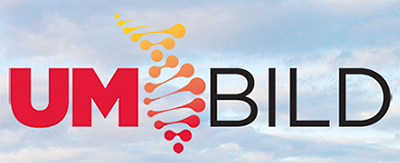 The Innovation Alliance will have three main components centered around funding and support for innovators as they take ideas from the lab to the marketplace. These include gathering twice a year to give partners and investors an exclusive first look at new technologies and emerging businesses supported and reviewed by the life sciences accelerator University of Maryland Baltimore Life Science Discovery (). Alliance partners will also work with an Innovation Advisory Group to review and consult on grant and investment decisions for cultivating new biomedical projects. Lastly, members of this new partnership will offer mentorship for university-affiliated researchers with entrepreneurial ideas.
The Innovation Alliance will have three main components centered around funding and support for innovators as they take ideas from the lab to the marketplace. These include gathering twice a year to give partners and investors an exclusive first look at new technologies and emerging businesses supported and reviewed by the life sciences accelerator University of Maryland Baltimore Life Science Discovery (). Alliance partners will also work with an Innovation Advisory Group to review and consult on grant and investment decisions for cultivating new biomedical projects. Lastly, members of this new partnership will offer mentorship for university-affiliated researchers with entrepreneurial ideas.
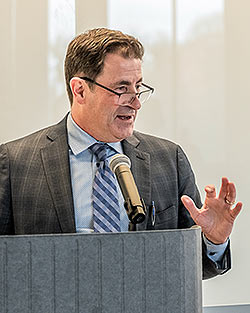
“Our vision of the new Innovation Alliance is an open, collaborative network where members can invite potential partners to accelerate healthcare innovation,” said , Dean of the University of Maryland School of Medicine, Vice President for Medical Affairs, University of Maryland, Baltimore (UMB), and the John Z. and Akiko K. Bowers Distinguished Professor. “Together, we can drive transformative medical solutions to improve patient care, advance scientific discovery, and position Maryland as a global leader and in the med-tech space.”
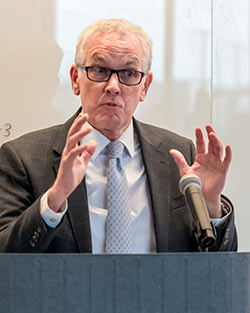
Fostering Innovation
Several key initiatives across the academic and medical enterprises of the University of Maryland already exist to support entrepreneurship and will help drive the success of the Innovation Alliance. These include UM-BILD, which, over four years, will provide more than 40 innovators with up to $100,000 in funding to help them take discoveries from the lab bench to the marketplace.
“We believe that innovation is the key to shaping the future of healthcare,” said , President and CEO of the University of Maryland Medical Center. “And through our incubators and special funding, we are fostering technology-driven breakthroughs here in Baltimore and across Maryland.”
is another vital strategic partnership between UMB and the University of Maryland, College Park that provides entrepreneurs with wet lab facilities, medical device prototyping, and $4.5 million in annual investments.
 Two initiatives, the and the University of Maryland Medical System (UMMS)/UMB , support innovations in patient care and hospital operations. Each year, the Innovation Challenge offers up to six hospital-based teams between $25,000 to $125,000 each for innovative proposals and guidance in navigating FDA approvals and market entry. The iHabor Innovation Center, meanwhile, serves as the UMMS patient care technology incubator. In addition to mentorship, it offers innovators funding up to $350,000 per project.
Two initiatives, the and the University of Maryland Medical System (UMMS)/UMB , support innovations in patient care and hospital operations. Each year, the Innovation Challenge offers up to six hospital-based teams between $25,000 to $125,000 each for innovative proposals and guidance in navigating FDA approvals and market entry. The iHabor Innovation Center, meanwhile, serves as the UMMS patient care technology incubator. In addition to mentorship, it offers innovators funding up to $350,000 per project.

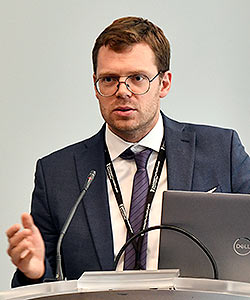
The Institute for Health Computing (), meanwhile, offers cutting-edge computational support for researchers in all fields and University of Maryland campuses. Founded in 2002 and located in North Bethesda, UM-IHC applies AI, bioinformatics, and immersive technologies to uncover hidden patterns in data to help make more accurate medical decisions, predict diseases, and identify novel treatments.
“Successful life science discovery takes a tremendous amount of work by some of the very best and brightest scientists. To translate those discoveries into innovative therapies, diagnostics, and devices that can be commercialized for actual patient use is its own unique, additional challenge,” said , a UMSOM Associate Professor of Medicine, the Associate Dean of Innovation and Physician Science Development, and Director of Faculty Entrepreneurship. “The University of Maryland is unique in the levels of targeted support we can offer our innovators and entrepreneurs, from seed-level funding to guidance on regulatory processes, as they seek to commercialize their discoveries.”
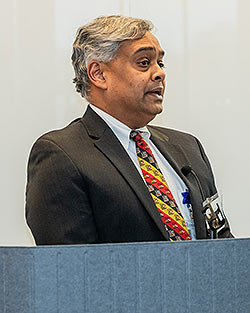
Innovative Maryland Companies
At a mid-March Innovation Alliance kick-off event, the first companies presented their technologies and therapies to more than 150 attendees. Vascular Rescue, Inc., for example, presented a prototype device for semi-automated insertion of venous catheterizations and arterial cannulations that could reduce complications for patients and the resulting unreimbursed hospital costs. Developed by UMB and co-founded by , head of the UMSOM Division of Vascular Surgery, Vascular Rescue is currently seeking FDA clearance for the AVAD through the 510(k) pathway.
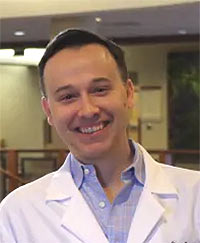
CoapTech, developed by UMB and co-founded by , UMSOM Clinical Assistant Professor of Emergency Medicine, is seeking funding to scale up the production and sales of its 510(k) pathway cleared PUMA-G platform. The device uses ultrasound to guide the minimally invasive placement of patient feeding tubes.
Globin Solutions, of which Dr. Rose is CEO and Co-Founder and Dean Gladwin is Chair of the Board and Co-Founder, exhibited its portfolio of resuscitation therapies, beginning with a first-of-its-kind antidote to carbon monoxide poisoning. The company is currently seeking $3.5 million in funding for a Phase I/IIa first-in-human study for safety and biomarker outcomes.
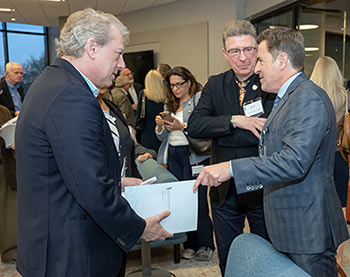 Joining the Innovation Alliance
Joining the Innovation Alliance
The Alliance offers multiple avenues for engagement for those interested in contributing to the project of making Maryland a leader in biomedical innovation, from attending Alliance gatherings, joining the Innovation Advisory Group to help review pilot grants, or mentoring start-ups. Donations can also be made to the University of Maryland Medicine Innovation Fund to amplify the impact of investments made across all Innovation Alliance initiatives.
To learn more or get involved, contact Kim Morton, Associate Dean for Development at University of Maryland Medicine, at [email protected]

